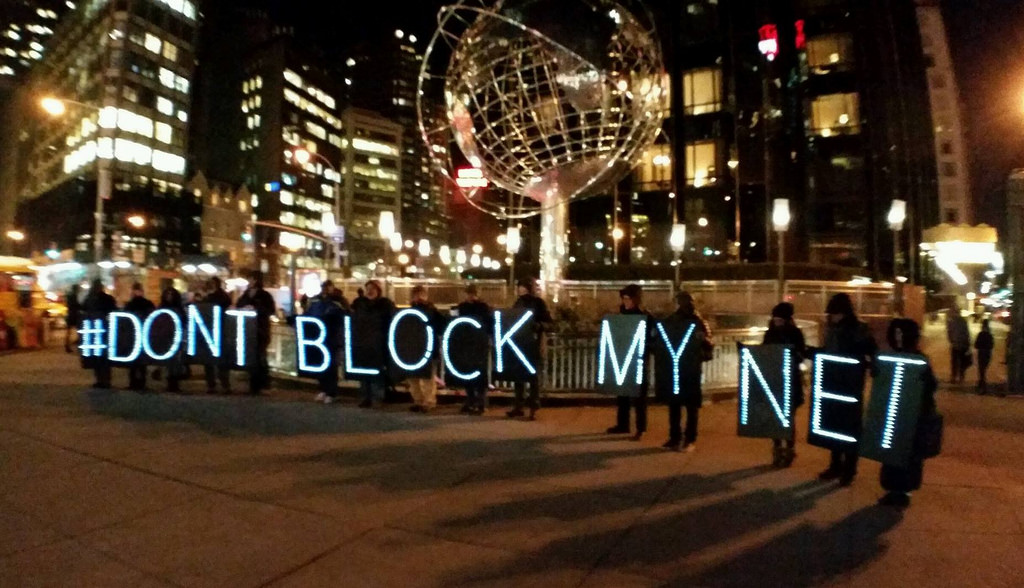Facebook is at it again. Using its political contacts in Washington, the social media giant is trying to skirt the rules of Net Neutrality by trying to provide Free Basic internet connection. This is another step by Facebook to monopolize the world’s internet, which failed when it tried to do it in India. Will they succeed in America?
According to The Washington Post, Facebook has been in talks with U.S. politicians for months to allow them to essentially violate Net Neutrality without incurring the consequences of doing so. The information came from sources that are familiar with the matter.
Right now, the Federal Communications Commission is already looking into anything that can be considered in violation of Net Neutrality. Some major examples include “Zero Rating” programs that are already being offered by companies like T-Mobile. Facebook’s Free Basic internet connection falls under this category, which is why the social network is tiptoeing around regulators to avoid their ire.
Facebook had already tried applying this same method in India several months ago, but the country’s leaders banded together to rebuff the service. If the social media giant succeeds in implementing its Free Basics program in the U.S., it would mark a major win for Mark Zuckerberg’s company and a huge defeat for Net Neutrality.
As Gizmodo notes, offers that are “Zero Rating” are dangerous for keeping the internet a free place for everyone because it locks out lesser competitors. Facebook’s version is particularly troubling because it would allow the social network to monopolize the internet as it sees fit.
It could give users only the version of the internet that would suit its bottom line, only allowing sites and corporations that would bow to its whim to be seen by users. There’s no guarantee that Facebook would actually do any of these things, but as Professor Susan Crawford at Harvard Law says, the world can’t afford to take this chance.



 Trump Signs “America First Arms Transfer Strategy” to Prioritize U.S. Weapons Sales
Trump Signs “America First Arms Transfer Strategy” to Prioritize U.S. Weapons Sales  Trump Endorses Japan’s Sanae Takaichi Ahead of Crucial Election Amid Market and China Tensions
Trump Endorses Japan’s Sanae Takaichi Ahead of Crucial Election Amid Market and China Tensions  Alphabet’s Massive AI Spending Surge Signals Confidence in Google’s Growth Engine
Alphabet’s Massive AI Spending Surge Signals Confidence in Google’s Growth Engine  SpaceX Reports $8 Billion Profit as IPO Plans and Starlink Growth Fuel Valuation Buzz
SpaceX Reports $8 Billion Profit as IPO Plans and Starlink Growth Fuel Valuation Buzz  U.S. Condemns South Africa’s Expulsion of Israeli Diplomat Amid Rising Diplomatic Tensions
U.S. Condemns South Africa’s Expulsion of Israeli Diplomat Amid Rising Diplomatic Tensions  Palantir Stock Jumps After Strong Q4 Earnings Beat and Upbeat 2026 Revenue Forecast
Palantir Stock Jumps After Strong Q4 Earnings Beat and Upbeat 2026 Revenue Forecast  Trump Says “Very Good Talks” Underway on Russia-Ukraine War as Peace Efforts Continue
Trump Says “Very Good Talks” Underway on Russia-Ukraine War as Peace Efforts Continue  Trump Administration Sued Over Suspension of Critical Hudson River Tunnel Funding
Trump Administration Sued Over Suspension of Critical Hudson River Tunnel Funding  TrumpRx Website Launches to Offer Discounted Prescription Drugs for Cash-Paying Americans
TrumpRx Website Launches to Offer Discounted Prescription Drugs for Cash-Paying Americans  Federal Judge Restores Funding for Gateway Rail Tunnel Project
Federal Judge Restores Funding for Gateway Rail Tunnel Project  Jack Lang Resigns as Head of Arab World Institute Amid Epstein Controversy
Jack Lang Resigns as Head of Arab World Institute Amid Epstein Controversy  California Sues Trump Administration Over Federal Authority on Sable Offshore Pipelines
California Sues Trump Administration Over Federal Authority on Sable Offshore Pipelines  SoftBank and Intel Partner to Develop Next-Generation Memory Chips for AI Data Centers
SoftBank and Intel Partner to Develop Next-Generation Memory Chips for AI Data Centers  Trump Family Files $10 Billion Lawsuit Over IRS Tax Disclosure
Trump Family Files $10 Billion Lawsuit Over IRS Tax Disclosure  Minnesota Judge Rejects Bid to Halt Trump Immigration Enforcement in Minneapolis
Minnesota Judge Rejects Bid to Halt Trump Immigration Enforcement in Minneapolis  Nvidia Nears $20 Billion OpenAI Investment as AI Funding Race Intensifies
Nvidia Nears $20 Billion OpenAI Investment as AI Funding Race Intensifies 































